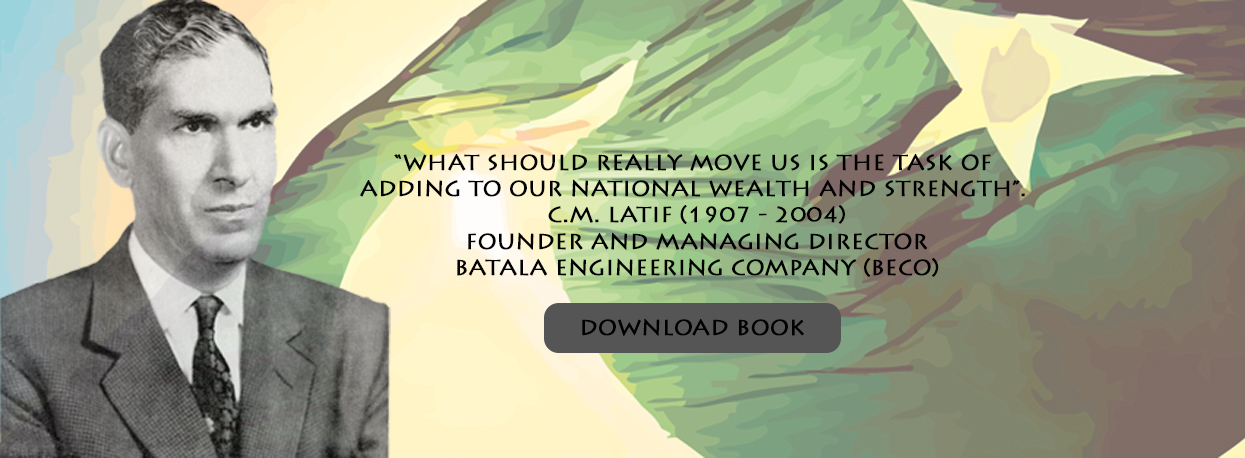

Prior to the nationalisation of industries in 1970s, Pakistan was portrayed as a country to become an 'Asian Tiger'. During 1960's, Pakistan's GDP grew at a rate close to 6.8 percent per year, and Pakistan emerged as one of the fastest growing economies in the world. Pakistan became a model of economic growth for the developing economies. Many developing countries at the time (some of these developed countries are now considered developed economies, such as People's Republic of China and South Korea) turned to Pakistan to learn its economic growth strategies and its industrialists' entrepreneurial abilities. While visiting Batala Engineering Company (BECO) at Badami Bagh, Lahore, in December 1956, Chou-En-Lai, the first Prime Minister of People's Republic of China, asked Pakistan to allow Chinese “to study and to learn” BECO technology that could help China to build its technology base.
The nationalisation of industries by the Zulfiqar Ali Bhutto's government in 1970s wiped out our industrial base, like BECO (BECO was the largest engineering
company in Pakistan at the time of the nationalisation of industries in 1972), and curbed entrepreneurial capabilities of Pakistani entrepreneurs, like C.M.
Latif, in the name of “roti, kapra, and makaan (food, cloth, and shelter)”. The nationalisation not just wiped out our technology-based industries; it led both
domestic and foreign industrialists and entrepreneurs to lose interest to invest in Pakistan in capital intensive, productivity enhancement and employment
generating sectors. As a result of Bhutto's nationalisation policies during 1970s, today, even after four decades, we neither have “roti, kapra, and makaan”, nor do we have industrial base.
This book leads us back through the history of industrialisation of Pakistan by providing records of events that led to the rise and fall of BECO and its chairman, C.M. Latif who was commonly known as a “towering entrepreneurial personality of Pakistan industry”.
But this is not a book about the yesterday as much as it works to place us in a continuum of yesterday to tomorrow. It is a book that tells us how misguided political decisions in the past have destroyed our industrial and technological base, and could inspire politicians and policy makers to learn from these mistakes to make present and future Pakistan a better place for industrial development and entrepreneurship.